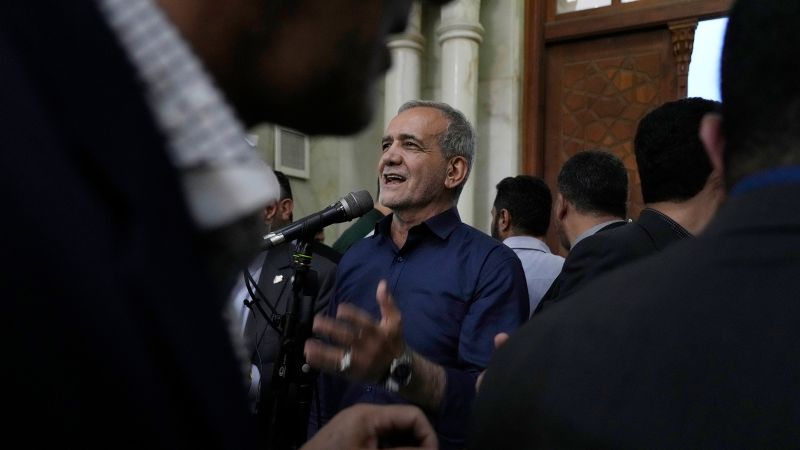CNN
—
Iran’s President-elect Masoud Pezeshkian said he looks forward to improving ties with Europe, despite accusing the continent of backtracking on commitments to alleviate the impact of US sanctions.
“Despite these missteps, I look forward to engaging in constructive dialogue with European countries to set our relations on the right path, based on principles of mutual respect and equal footing,” Pezeshkian wrote in the English-language Tehran Times newspaper.
Pezeshkian went on to state that there were numerous areas of cooperation to explore once “European powers come to terms with this reality and set aside self-arrogated moral supremacy coupled with manufactured crises that have plagued our relations for so long.”
In 2018, under then-President Donald Trump, the US pulled out of the landmark nuclear deal, formally known as the Joint Comprehensive Plan of Action (JCPOA) – a move the EU, UK, France and Germany later said they “deeply regret” – and reimposed sanctions.
European countries made 11 commitments to Iran to “try to salvage the agreement and mitigate the impact of the United States’ unlawful and unilateral sanctions on our economy,” Pezeshikian said.
“European countries have reneged on all these commitments, yet unreasonably expect Iran to unilaterally fulfill all its obligations under the JCPOA,” he added.
He said the commitments included “ensuring effective banking transactions, effective protection of companies from U.S. sanctions, and the promotion of investments in Iran.”
Pezeshkian, a 69-year-old trained heart surgeon and lawmaker, won Iran’s presidential election last Saturday, defeating his hardline rival Saeed Jalili, Iran’s former nuclear negotiator, in a pivotal vote amid heightened tensions both domestically and internationally.
The reformist has favored dialogue with Iran’s foes, particularly over its nuclear program, and sees that as a means to address the country’s domestic issues.
“I wish to emphasize that Iran’s defense doctrine does not include nuclear weapons and urge the United States to learn from past miscalculations and adjust its policy accordingly,” Pezeshkian wrote.
“Decision-makers in Washington need to recognize that a policy that consists of pitting regional countries against each other has not succeeded and will not succeed in the future,” he added.
Iran’s Supreme Leader, Ayatollah Seyyed Ali Khamenei, has the final say on all matters of state. Pezeshkian will ultimately defer to Khamenei, who has condemned those seeking improved relations with the West, on matters of foreign policy.

